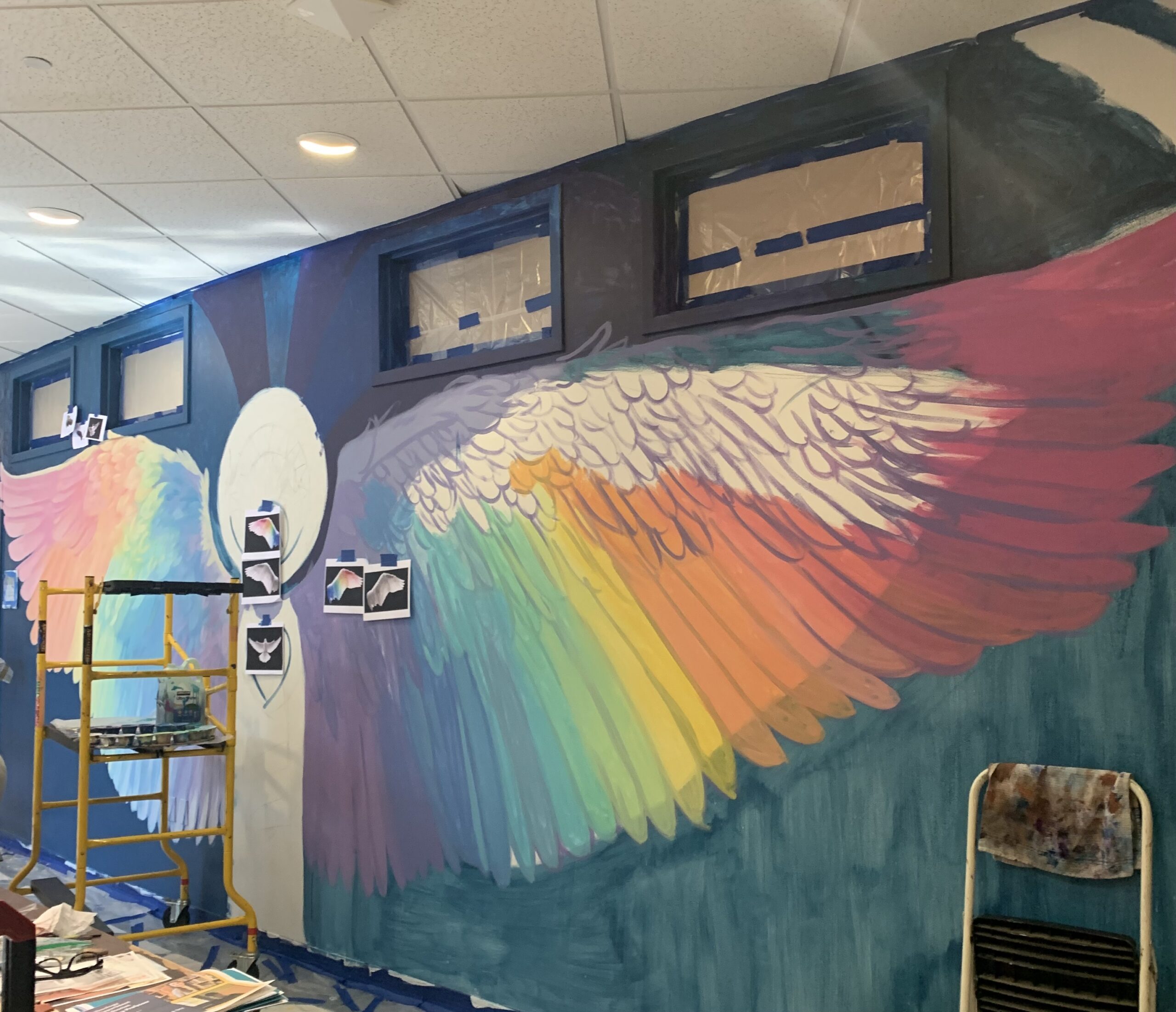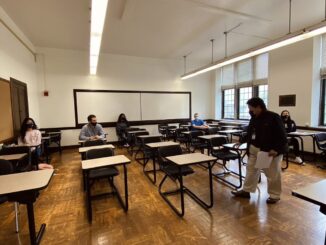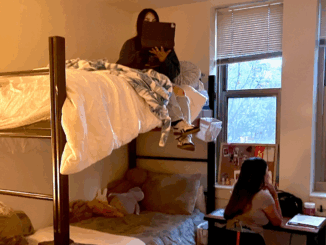
By Angelica Carrillo
On Indigenous Peoples Day, Rivera, the inaugural director of the Office of Hispanic Serving Initiatives at Dominican University, shared her profound journey of reconnecting with her Taíno roots. The event, attended by about 40 faculty and staff members, emphasized the importance of recognizing indigenous identities within the Hispanic community.
“I want people to recognize that most Hispanics are also indigenous,” Rivera said. “They forget we are also indigenous.”
She recounted how a DNA test revealed unexpected aspects of her ancestry, including connections to Portugal and Africa. “Seeing those results brought me to tears,” she said. “I had assumed I was just what I was told—Puerto Rican—but there was so much more.”
Motivated by this discovery, Rivera delved deeper into her roots. Currently training to become a Behike, a ceremonial leader in Taíno culture, she is inspired by her own Behike who guided her on this path
“This is my own way of reclaiming the space for indigenous ancestors, reclaiming the space that was not made for us,” she explained.
During the presentation, she highlighted elements of Taíno culture embedded in everyday life. She noted that common words like “hammock,” “barbecue,” and “canoe” have Taíno origins, underscoring the influence of indigenous languages. She also outlined the spiritual significance of tobacco in Taíno ceremonies and the use of artifacts like the conch shell in spiritual practices.
“Many people don’t realize that aspects of Taíno culture are part of their daily lives,” Rivera explained. “By acknowledging these, we honor our ancestors and keep their traditions alive.”
Attendees found the presentation enlightening and motivating.
“As a registered Pasqua Yaqui tribal member, I was interested,” said Nacho Montiel, lecturer in graphic design. “But my presence was solidified with the personal invitation from Rivera herself. The cultural shift of focusing on Indigenous Peoples Day instead of the other holiday is a step towards inclusivity and shedding light on these histories.”
Rivera also addressed misconceptions surrounding Columbus Day, challenging the narrative that Columbus “discovered” the Americas. She emphasized the importance of recognizing the impact of colonization on indigenous peoples.
Other Dominican administrators found the presentation illuminating.
“Columbus did not discover anything; he was a colonizer,” remarked Precious Porras, vice president for justice, equity, and inclusion, whose office sponsored the event. “It is important for institutions like DU to show both sides of history. Rivera shared things I did not know, including details about Columbus’s journey to the Americas. It’s a reminder that what we learned in school often gets whitewashed, which is harmful to BIPOC communities.”
Dominican University began to mark Indigenous Peoples Day in 2015 through a collaboration between the then Diversity, Equity, and Inclusion Office and the University Ministry. The offices held intimate moments of reflection and learning with students, leading to practices like the annual celebration of Día de los Muertos, rooted in the indigenous spiritualities of the Aztecs and Toltecs.
Maria Villanueva, program coordinator for the PASOS Network in Mission and Ministry, said Rivera’s talk inspired her in her own work. “We need to start promoting more cultural diversity on campus,” Villanueva said. “As someone who is Mexican, I wanted to become familiar with her roots and her history. Learning about the Taíno culture opened my eyes to the indigenous connections we share.”
Rivera expressed her desire to bring more indigenous programming to campus and promote inclusivity. “This is the year that I have been representing more of my community and identity,” she said. “My hope is that people recognize that most Hispanics are also indigenous.”
acarillo@my.dom.edu



